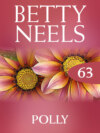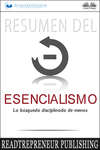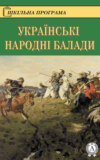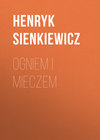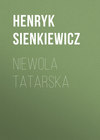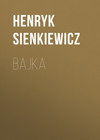Kitabı oku: «With Fire and Sword», sayfa 18
"Forward!"
"At breakneck speed."
They moved on, and soon after them the Cossacks; but the latter rode slowly, so that in a short time they were a good distance in the rear, and finally were lost to sight.
Bogun and Zagloba rode side by side in silence, both in deep thought. Zagloba pulled his mustache, and it was evident that he was working vigorously with his brain; he was planning, perhaps, how to extricate himself from the whole affair. At times he muttered something to himself half audibly; then again he looked at Bogun, on whose face was depicted now unrestrained anger, now grief.
"It is a wonder," thought Zagloba to himself, "that though such a beauty, he was not able to bring the girl to his side. He is a Cossack, it is true, but a famous knight and a lieutenant-colonel, who sooner or later will become a noble, unless he joins the rebellion, which depends entirely on himself. Pan Skshetuski is a respectable cavalier and good-looking but he cannot compare in appearance with the Cossack, who is as beautiful as a picture. Ha! they will grapple when they meet, for both are champions of no common kind."
"Bogun, do you know Pan Skshetuski well?" asked Zagloba, suddenly.
"No," answered the Cossack, briefly.
"You will have difficult work with him. I saw him when he opened the door for himself with Chaplinski. He is a Goliath in drinking as well as fighting."
Bogun made no reply, and again they were both buried in their own thoughts and anxieties; following which, Zagloba repeated from time to time: "So there is no help!"
Some hours passed. The sun had travelled far to the west, toward Chigirin; from the east a cool breeze sprang up. Zagloba took off his lynx-skin cap, raised his hand to his sweat-moistened head, and repeated again: "So there is no help!"
Bogun roused himself, as if from sleep. "What do you say?" he inquired.
"I say that it will be dark directly. Is it far yet?"
"No."
In an hour it had grown dark in earnest, but they had already reached a woody ravine. At the end of the ravine a light was gleaming.
"That is Rozlogi," said Bogun, suddenly.
"Is it? Whew! there is something cold in that ravine."
Bogun reined in his horse. "Wait!" said he.
Zagloba looked at him. The eyes of the leader, which had the peculiarity of shining in the night, were gleaming at that moment like a pair of torches.
Both of them stood for a long time motionless at the edge of the ravine. At length the snorting of horses was heard in the distance. These were Bogun's Cossacks coming on slowly from the depth of the forest.
The essaul approached for orders, which Bogun whispered in his ear; then the Cossacks halted again.
"Forward!" said Bogun to Zagloba.
Soon the dark masses of buildings around the mansion, the storehouses and well-sweeps stood in outline before their eyes. It was quiet in the yard. The dogs did not bark. A great golden moon shone above the buildings. From the garden came the odor of the cherry and apple blossoms. Everywhere it was quiet, – a night so wonderful that in truth it lacked only the sound of a lyre somewhere under the windows of the beautiful princess. There was light yet in some parts of the house.
The two horsemen approached the gate.
"Who is there?" called the voice of the night-guard.
"Don't you know me, Maksim?"
"Oh, that is you! Glory to God!"
"For the ages of ages. Open the gate! And how is it with you?"
"All is well. You haven't been in Rozlogi for a long time."
The hinges of the gate squeaked sharply, the bridge fell over the fosse, and the two horsemen rode into the square.
"Look here, Maksim! don't shut the gate, and don't raise the bridge, for I am going out directly."
"Oh! you hurry as if you had come for fire."
"True! Tie the horse to the post!"
CHAPTER XVIII
The Kurtsevichi were not sleeping yet. They were supping in that anteroom, filled with weapons, which extended the whole width of the house, from the garden to the square on the other side. At the sight of Bogun and Zagloba, they sprang to their feet. On the face of the princess was reflected not only astonishment, but displeasure and fright as well. Only two of the young men were present, – Simeon and Nikolai.
"Oh, Bogun!" exclaimed the princess. "But what are you here for?"
"I came to do you homage, mother. Are you not glad to see me?"
"I am glad to see yon, – glad; but I wonder that you came, for I heard that you were on guard in Chigirin. But whom has God sent to us with you?"
"This is Pan Zagloba, – a noble, my friend."
"We are glad to see you, sir," said the princess.
"We are glad," repeated Simeon and Nikolai.
"Worthy lady!" said Zagloba, "an untimely guest, it is true, is worse than a Tartar; but it is known also that whoever wishes to enter heaven must receive the traveller into his house, give meat to the hungry, and drink to the thirsty" -
"Sit down, then; eat and drink," said the old princess. "We are thankful that you have come. But, Bogun, I did not expect to see you; perhaps you have some business with us."
"Perhaps I have," answered Bogun, slowly.
"What is it?" asked the princess, disturbed.
"When the moment comes, we will talk about it. Let us rest a little. I have come straight from Chigirin."
"It is evident that you were in a hurry to see us."
"And whom should I be in a hurry to see, if not you? Is Princess Helena well?"
"Well," replied the old lady, dryly.
"I should like to gladden my eyes with her."
"Helena is sleeping."
"That is too bad, for I shall not stay long."
"Where are you going?"
"War, mother! There is no time for aught else. Any moment the hetmans may send us to the field, and it will be a pity to strike Zaporojians. Was it seldom that we went with them for Turkish booty? Isn't it true, Princes? We sailed upon the sea with them, ate bread and salt with them, drank and caroused, and now we are their enemies."
The princess looked quickly at Bogun. The thought flashed through her mind that perhaps Bogun intended to join the rebellion, and came to tamper with her sons.
"And what do you think of doing?" inquired she.
"I, mother? Well, it is hard to strike our own, but it is demanded."
"That is what we will do," said Simeon.
"Hmelnitski is a traitor!" added the young Nikolai.
"Death to traitors!" said Bogun.
"Let the hangman light their way," added Zagloba.
Bogun began to speak again: "So it is in this world. He who to-day is your friend is to-morrow a Judas. It is impossible to trust any one."
"Except good people," said the princess.
"True, you can believe good people; therefore I believe and love you; for you are good people, not traitors."
There was something so strange in the voice of the leader that in a moment deep silence reigned. Zagloba looked at the princess, and blinked with his sound eye; but the princess fixed her glance on Bogun.
He spoke on: "War does not give life to men, but death; therefore I wanted to see you once more before going to the field. And you would mourn over me, for you are my friends from the heart, are you not?"
"We are, as God is our aid. From childhood we have known you."
"You are our brother," added Simeon.
"You are princes, you are nobles, and you did not despise the Cossack; you took him to your house and promised him the maiden, your relative, for you knew that for the Cossack there was neither life nor existence without her; so you had mercy on the Cossack."
"There is nothing to talk about," said the princess, hurriedly.
"But there is, mother, something to talk about; for you are my benefactress, and I have asked of this noble, my friend, to make me his son and give me his escutcheon, so that you may not be ashamed to give your relative to a Cossack. Pan Zagloba has agreed to this, and we shall seek the permission of the Diet, and when the war is over will go to the Grand Hetman, who is kind to me. He can assist. He too acquired nobility for Krechovski."
"God give you aid!" said the princess.
"You are sincere people, and I thank you. But before the war I should like to hear once more from your lips that you give me the maiden, and that you will keep your word. The word of a noble is not smoke, and you are a princess."
Bogun spoke with a slow and solemn voice, but at the same time in his speech there vibrated, as it were, a threat declaring that there must be consent to what he demanded.
The old princess looked at her sons; they looked at her, and for a moment silence continued. Suddenly the falcon, sitting on her perch by the wall, began to make a noise, though it was long before daylight; others followed her. The great eagle woke, shook his wings, and began to scream. The pitch-pine burned low; it was growing gloomy and dark in the room.
"Nikolai, put wood on the fire!" said the old princess.
The young prince threw on more wood.
"Well, do you consent?" inquired Bogun.
"We must ask Helena."
"Let her speak for herself; you speak for yourselves. Do you promise?"
"We promise," said the mother.
"We promise," said the sons.
Bogun stood up suddenly, and turning to Zagloba, said with a clear voice, -
"My friend Zagloba, ask for the maiden too; maybe they will give her to you."
"What do you mean, Cossack? Are you drunk?" cried the princess.
Bogun, in place of an answer, took out Skshetuski's letter, and turning to Zagloba, said: "Read!"
Zagloba took the letter, and began to read it in the midst of deep silence. When he had finished, Bogun crossed his arms on his breast.
"To whom then do you give the girl?" asked he.
"Bogun!"
The voice of the Cossack became like the hiss of a serpent: "Traitors, murderers, faith-breakers, Judases!"
"Sons, to your sabres!" screamed the princess.
The princes sprang like lightning to the walls, and seized their arms.
"Quiet, gentlemen, quiet!" began Zagloba.
But before he had finished speaking, Bogun drew a pistol from his belt and fired.
"Jesus!" groaned Prince Simeon. Advancing a step, he began to beat the air with his hands, and fell heavily on the floor.
"People, to the rescue!" screamed the princess, in despair.
But that moment, in the yard and from the side of the garden, were heard other volleys. The windows and the doors flew open with a crash, and several tens of Cossacks rushed into the room.
"Destruction!" thundered wild voices.
The alarm-bell was tolled on the square. The birds in the room began to scream. Uproar, firing, and shouts took the place of the recent quiet of a drowsy house.
The old princess threw herself, howling like a wolf, on the body of Simeon, shuddering in the last convulsions; but soon two Cossacks seized her by the hair and drew her aside. Meanwhile Nikolai, driven to the corner of the room, defended himself with fury and the boldness of a lion.
"Aside!" cried Bogun suddenly, to the Cossacks around him. "Aside!" repeated he, with a thundering voice.
The Cossacks withdrew. They thought that he wished to save the life of the young man. But Bogun himself, with sabre in hand, rushed on the prince.
Now began a terrible hand-to-hand struggle, on which the princess, whose hair was grasped by four iron hands, looked with glaring eyes and open mouth. The young prince hurled himself like a storm on the Cossack, who, retreating slowly, led him out into the middle of the room. Then suddenly stooping, he parried a powerful blow, and from defence changed to attack.
The Cossacks, holding their breath, let their sabres hang, and motionless, as if fastened to the floor, followed with their eyes the course of the conflict. Only the breathing and panting of the combatants were heard in the silence, with the gnashing of teeth, and the sharp click of the swords striking each other.
For a while it appeared as if Bogun would yield to the gigantic power and obstinacy of the youth, for he began again to retreat and defend himself. His countenance was contracted as if by over-exertion. Nikolai redoubled his blows; dust rose from the floor and covered the two men with a cloud, but through the masses of it the Cossacks saw blood flowing from the face of their leader.
All at once Bogun sprang aside; the prince's sword struck the empty air. Nikolai staggered from the effort and bent forward; that instant the Cossack struck him such a blow on the neck that he dropped as if struck by lightning.
The joyful cries of the Cossacks were mingled with the unearthly shriek of the princess. It seemed as though the ceiling would break from the noise. The struggle was finished. The Cossacks rushed at the weapons hanging along the walls, and began to pull them down, tearing from one another the most costly sabres and daggers, and trampling upon the bodies of the princes and their own comrades who had fallen at the hands of Nikolai. Bogun permitted everything. He stood at the door leading to Helena's rooms, guarding the way. He breathed heavily from weariness; his face was pale and bloody, for the sword of the prince had struck his head twice. His wandering look passed from the body of Nikolai to the body of Simeon, and then fell upon the blue face of the princess, whom the Cossacks, holding by the hair, pressed to the floor with their knees, for she was tearing herself from their hands to the bodies of her children.
The tumult and confusion in the room increased every moment. The Cossacks tied the servants with ropes and tormented them without mercy. The floor was covered with blood and dead bodies, the room filled with smoke from pistol-shots; the walls were stripped, the birds killed.
All at once the door at which Bogun stood was opened wide. He turned and started back. In the door appeared the blind Vassily, and at his side Helena, dressed in a white gown, pale herself as the gown, with eyes starting out from terror, and with open mouth.
Vassily carried in both hands a cross, which he held as high as his face. In the midst of the uproar in the room, in the presence of the corpses, and the blood scattered in pools on the floor, in front the glitter of sabres and of flashing eyes, that lofty figure had an appearance of wonderful solemnity. Emaciated, with hair growing gray, and with depressions instead of eyes, you would have said that it was a spirit, or a dead body which had left its shroud and was coming for the punishment of crime.
The clamor ceased; the Cossacks drew back in a fright. Silence was broken by the calm, but painful and groaning voice of the prince, -
"In the name of the Father, the Saviour, the Spirit, and the Holy Virgin! Oh, you men who come from distant lands, do you come in the name of God? – for blessed is the wayfarer who goes announcing the word of God. And do you bring good news? Are you apostles?"
A deathlike stillness reigned after the words of Vassily; but he turned slowly with the cross to one side and then the other, and continued, -
"Woe to you, brothers, for whoso makes war for gain or vengeance will be damned forever. Let us pray, so that we obtain mercy. Woe to you, brothers, woe to me! Woe! woe! woe!"
A groan came from the breast of the prince.
"Lord, have mercy upon us!" answered the dull voices of the Cossacks, who under the influence of fear began to make the sign of the cross in terror.
Suddenly a wild piercing shriek from the princess was heard: "Vassily! Vassily!"
There was something in her voice as full of anguish as in the last voice of life passing away. But the Cossacks pressing her with their knees knew that she could not escape from their hands.
The prince shuddered, but immediately covered himself with the cross, on the side from which the voice came, and said: "Oh, lost soul, crying from the abyss, woe to thee!"
"Lord, have mercy upon us!" repeated the Cossacks.
"To me!" said Bogun to the Cossacks that moment, and he staggered.
The Cossacks sprang and supported him under the shoulders.
"You are wounded, father?"
"I am! But that is nothing; I have lost blood. Here, boys! guard this young woman as the eyes in your head. Surround the house; let no one out! Princess-"
He could say no more; his lips grew white, and his eyes were covered with a mist.
"Bear the ataman to the rooms!" cried Zagloba, who creeping out of some corner or another appeared unexpectedly at Bogun's side. "This is nothing, nothing at all," said he, feeling the wounds with his fingers. "He will be well to-morrow. I will take care of him. Mix up bread and spider-webs for me! You, boys, go off to the devil with yourselves, to frolic with the girls in the servants' quarters, for you have nothing to do here; but let two carry the ataman. Take him-that's the way! Be off now! What are you standing here for? I will take care of the house, I will look after everything."
Two Cossacks carried Bogun to the adjoining room; the rest went out of the antechamber.
Zagloba approached Helena, and rapidly blinking his one eye, said in a quick low voice, -
"I am Pan Skshetuski's friend; have no fear. Only put your prophet to bed and wait for me."
Having said this, he went to the room in which the two essauls had put Bogun on a Turkish divan. Then he sent them for bread and spider-webs; and when these were brought from the servants' quarters he set about nursing the young ataman with the dexterity which every noble possessed at that period, and which he acquired in plastering heads cut up in duels at the petty Diets.
"Tell the Cossacks," said he to the essauls, "that to-morrow the ataman will be as well as a fish, and not to trouble about him. He got a scratch, but came out splendidly, and to-morrow he can have his wedding even without a priest. If there is a wine-cellar in the house, then you may use it. See, his wounds are dressed already! Now go, that the ataman may rest."
The essauls moved toward the door.
"But don't drink the whole cellar dry," added Zagloba.
Sitting at Bogun's pillow, he looked at him attentively.
"Well, the devil won't take you on account of these wounds, though you got good ones. You won't move hand or foot for two days," muttered he to himself, looking at the pale face and closed eyes of the Cossack. "The sabre was unwilling to cheat the executioner; for you are his property and from him you will not escape. When they hang you the devil will make a doll out of you for his imps, as you are pretty-faced. No, brother, you drink well, but you will drink no longer with me. You may seek companions for yourself among crawfish-dealers, for I see that you like to kill people, but I will not fall upon noble houses with you in the night. May the hangman light your way!"
Bogun groaned slightly.
"Oh, groan and sigh! To-morrow you'll groan better. But wait, you Tartar soul, you wanted the princess? I don't wonder, for she is a beauty; but if you get her, then I'll let the dogs eat my wit. Hair will grow on the palms of my hands first."
The uproar and hum of many voices came from the square to the ears of Zagloba.
"Ah! they have got to the cellar surely," he muttered. "Drink like horseflies, so that you will sleep well. I will watch for all of you, though I don't know whether you will be glad of my watching to-morrow."
Then he rose to see if the Cossacks had really made the acquaintance of the princess's cellar, and went to the anteroom, where a terrible sight met his eyes. In the middle of the room lay the bodies of Simeon and Nikolai, already cold, and in the corner of the room the body of the princess in a sitting posture, inclined just as she had been bent by the Cossacks. Her eyes were open, her teeth exposed. The fire, burning in the chimney, filled the whole room with a faint light, trembling in pools of blood; the depth of the room was obscure in the shadow. Zagloba approached the princess to see if she was breathing, and placed his hand on her face; it was cold already. He hurried to the square, for terror seized him in that room.
The Cossacks had begun their revel on the outside. Fires had been kindled, by the light of which Zagloba saw barrels of mead, wine, and spirits with the heads broken in. The Cossacks dipped from them as from a well, and drank with all their might. Some, already warmed by drink, chased the young women from the servants' quarters; some of the young women, seized by fright, struggled and ran away, springing through the fire, others amidst bursts of laughter and shouting allowed themselves to be caught and drawn toward the barrels, or fires at which they were dancing the Cosachka. The Cossacks rushed into the dance as if mad; in front of them the girls now pushing forward, now retreating before the violent movements of their partners.
The spectators either kept time with tin cups, or sang. Cries of "U-ha!" were heard louder and louder, with the accompaniment of howling of dogs, neighing of horses, and bellowing of cattle to be slaughtered for the feast.
At the distant fires were seen peasants from around Rozlogi, – neighbors, who at the sound of shots and cries had rushed from the village in crowds to see what was going on. They did not think of defending the princess, for the Kurtsevichi were hated in the place; they only looked on the revelling of the Cossacks, elbowing one another, whispering, and approaching nearer and nearer the barrels of vudka and mead. The orgies grew more and more tumultuous, the drinking increased. The Cossacks no longer dipped from the barrels with cups, but thrust their heads in up to the neck, and sprinkled the dancing girls with vudka and mead. Their faces were inflamed, steam rose from their heads; and some were already staggering.
Zagloba, coming out on the porch, cast his eye on the drinking crowd, then looked carefully at the sky.
"Clear, but dark," he muttered; "when the moon goes down you might strike them in the face, they wouldn't see you. – Go on, my boys," he cried, "go on! Don't spare yourselves; your teeth won't grow stiff. A fool is he who won't drink to-day to the health of his ataman! Go on with the barrels! Go on with the girls! U-ha!"
"U-ha!" shouted the Cossacks, joyfully.
Zagloba looked around on every side.
"Oh, you wretches, rogues, good-for-nothings!" shouted he, all at once; "you drink yourselves like horses after a journey, but to the men on guard around the house not a drop. Hallo there! change the guards for me this minute!"
The order was executed without delay, and in a moment a number of tipsy Cossacks ran to relieve the guards, who up to that time had taken no part in the revelry. They came in at once with a haste easily understood.
"Help yourselves!" cried Zagloba, "help yourselves!" pointing to the barrels.
"We thank you!" answered the Cossacks, dipping in the cups.
"In an hour relieve these for me."
"Very well," said the essaul.
It seemed quite natural to the Cossacks that Zagloba should take the command in place of Bogun. It had happened already more than once, and they were glad of it because he always permitted them everything. The guards therefore drank with the others. Zagloba entered into conversation with the peasants of Rozlogi.
"Well, my man," asked he of an old "sub-neighbor," "is it far from here to Lubni?"
"Oh, very far, very far!"
"Could a man get there by morning?"
"Oh, no!"
"In the afternoon?"
"In the afternoon, perhaps."
"And how do you go there?"
"By the high-road."
"Is there a high-road?"
"Oh, yes; Prince Yeremi commanded that there should be a road, and there it is."
Zagloba spoke loud on purpose, so that in the shouting and noise a large number of Cossacks might hear him.
"Give them vudka too," said he to the Cossacks, pointing to the peasants; "but first give me some mead, for the night is cold."
One of the Cossacks drew mead from the barrel into a gallon pail, which he passed on his cap to Zagloba.
Zagloba took the pail carefully in both hands, so that it should not overflow, raised it to his lips, and pushing his head back, began to drink slowly, but without drawing breath. He drank and drank, till the Cossacks began to wonder.
"Look at him," said one to another, "plague take him!"
Meanwhile Zagloba's head went back slowly, till at last he took the gallon measure from his reddened face, pursed out his lips, raised his brows, and said, as if to himself, -
"Oh, it is not bad! Old mead! – evident at once that it is not bad. A pity to give such mead to your scoundrelly throats, – dregs would be good enough for you! Strong mead! I know that it has comforted me, and that I feel a little better."
Indeed, Pan Zagloba felt better; his head became clear, he grew daring; and it was evident that his blood mixed with mead formed the excellent liquor of which he had spoken himself, and from which bravery and daring went through the whole man. He beckoned to the Cossacks to drink more, and turning, passed with a leisurely step along the whole yard; he examined every corner carefully, crossed the bridge over the fosse, and went around the picket-fence to see if the guards were watching the house carefully. The first sentry was asleep; the second, the third, and the fourth also. They were weary from the journey, and besides had come to their posts drunk, and had fallen asleep straightway.
"I might steal any one of them, and make him my man," said Zagloba.
Then he turned straight to the yard, entered the ill-omened anteroom again, looked at Bogun, and seeing that he gave no sign of life, withdrew to Helena's door, and opening it quietly, entered the room, from which there came a sound as of prayer.
It was really Prince Vassily's room. Helena, however, was there with the prince, with whom she felt in greater safety. The blind Vassily was kneeling before an image of the Holy Virgin, in front of which a lamp was burning. Helena was at his side. Both of them were praying aloud. Seeing Zagloba, she turned her astonished eyes on him. He placed his finger on his lips.
"I am a friend of Pan Skshetuski," said he.
"Rescue me!" answered Helena.
"It is for that I have come; trust in me."
"What have I to do?"
"It is necessary to escape while that devil is lying unconscious."
"What must I do?"
"Put on man's clothes; and when I knock at the door, come out."
Helena hesitated; distrust shone in her eyes. "Can I trust you?"
"What better can you do?"
"True, true; but swear that you will not betray me."
"Your mind is disturbed, to ask that. But if you wish, I swear. So help me God and the holy cross! Destruction waits you here, salvation is in flight."
"That is true, that is true."
"Put on male attire as quickly as you can, and wait."
"And Vassily?"
"What Vassily?"
"My crazy cousin."
"Destruction threatens you, not him," said Zagloba. "If he is crazy, he is sacred to the Cossacks. Indeed, I noticed that they take him for a prophet."
"That is true, and he has offended Bogun in nothing."
"We must leave him; otherwise we are lost, and Pan Skshetuski with us. Hurry, my lady, hurry!"
With these words Zagloba left the room and went directly to Bogun. The chief was pale and weak, but his eyes were open.
"You are better?" asked Zagloba.
Bogun wished to speak, but could not.
"You cannot speak?"
Bogun moved his head in sign that he could not, but at the same time suffering was stamped on his face. His wounds had evidently grown painful from movement.
"And you are not able to cry?"
Bogun gave a sign only with his eyes that he could not.
"Nor move?"
The same sign.
"So much the better; for you will not speak, nor cry, nor move. Meanwhile I will go to Lubni with the princess. If I don't sweep her away from you, then I will let an old woman grind me to bran in a mill. What a scoundrel! You think that I haven't enough of your company, that I will be hail-fellow-well-met with trash? Oh, you scoundrel! you thought that for your wine, your dice, and your plebeian loves I would kill people and go into rebellion with you? No, nothing of the sort, my handsome fellow!"
As Zagloba went on, the dark eyes of the chief opened wider and wider. Was he dreaming, was he awake, or was Zagloba jesting?
But Zagloba talked on: "What do you stare so for, like a cat? Do you think that I won't do this? Perhaps you would like to send your respects to somebody in Lubni? A barber could be sent to you, for a good one can be had from the prince."
The pale visage of the chief became terrible. He understood that Zagloba was speaking in earnest. Lightning flashes of despair and rage shot from his eyes; a flame rushed into his face. With superhuman effort he raised himself and a cry broke from his lips.
"Hi! Cos-"
He had not finished when Zagloba, with the speed of lightning, threw Bogun's coat over his head, and in a moment had wound it completely around him and thrown him on his back.
"Don't cry, for it hurts you," said he quietly, panting heavily. "Your head might go to aching to-morrow; therefore as a good friend I am careful of you. In this fashion you will be warm and sleep comfortably, not scream your throat out. Lest you tear your clothes, I will bind your hands; and all this through friendship, that you may remember me with gratitude."
With the belt on the Cossack he bound his hands; then with his own belt he tied his feet. Bogun felt nothing now; he had fainted.
"A sick man should lie quietly," said Zagloba, "so that humor may not fly to his head; from this comes delirium. Well, good health to you! I might rip you with a knife, which would probably be the best use for you, but I am ashamed to kill a man in peasant fashion. Quite another affair if you choke before morning, for that has happened to more than one pig. Good health, and return my love! Maybe we shall have another meeting; but if I try to hasten it, then let some one flay me and make horse-cruppers of my skin."
When he had finished this speech Zagloba went to the anteroom, quenched the fire in the chimney, and knocked at Vassily's door. A slender figure emerged from it at once.
"Is that you?" asked Zagloba.
"It is."
"Come on! If we only reach the horses-but then the Cossacks are all drunk, the night is dark; before they wake we shall be far away. Be careful! the princes are lying here."
"In the name of the Father, Son, and Holy Ghost!" whispered Helena.





